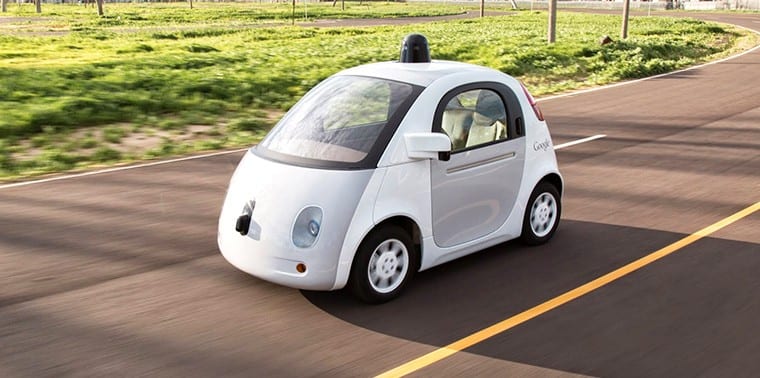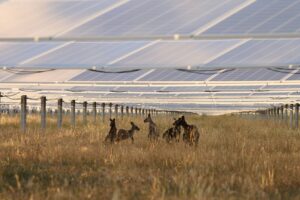The leader of the NSW Opposition has unveiled a plan to make the state’s Hunter region a national hub for clean technology industry, including the manufacture of driverless cars.
NSW Labor leader Luke Foley outlined the proposal in his budget reply speech on Thursday, including plans to bring forward legislation to legalise the testing of autonomous electric cars on designated public roads.

Foley said that under a Labor government, the Hunter region would also lead the state on renewable energy – an area in which NSW is lagging the rest of the country – using its highly skilled manufacturing sector and long experience in commercialising innovation.
Institutions including the Newcastle Institute for Energy and Resources at the University of Newcastle and the CSIRO were also both well placed to position the Hunter as a national hub of clean technology, he said.
But it was the prospect of a NSW hub of autonomous vehicle (AV) industry that seemed to inspire Foley the most.
The driverless car industry – while in its infancy, both technologically and in terms of legislation and regulation – has been forecast to be worth $90 billion globally by 2030.
Certainly, global tech giants the likes of Google, IBM and Apple have been investing billions in research and development on the technology. In the case of Apple, as we reported last month, it has spent more on car and related services in the past few years than it did on the Apple Watch, iPad and iPhone combined. Although it still doesn’t have any products to show for its efforts.
R&D aside, the roll-out of driverless cars will also have to navigate some curvy moral dilemmas, such as the question of who it should kill in case of an accident: pedestrians or the vehicle occupants?
As this Guardian article points out, “the odds of an AV facing such a black and white situation, and being aware of the fact in time to act, are extremely low. But when millions of driverless cars take to the roads, small odds can build up to a daily occurrence.”
Nonetheless, there are some functioning AV’s out there and driving on public roads. Like the driverless bus called Olli, that just last week hit the streets of Washington DC. The 3D printed, 12-seater autonomous electric minibus is designed by Local Motors, using IBM software called “Watson”.

Using Watson, passengers can tell Olli where they’re heading and ask it questions about how the technology works. The minibus will be exclusive to DC for the next few months, and then released in Miami and Las Vegas in late 2016.
Local Motors is also in talks to test the bus in cities outside the US, including Berlin, Copenhagen and Australia’s own Canberra.
“Driverless cars will be with us sooner than many might think and the Hunter should lead the way,” Foley said in his budget reply speech on Thursday. “(They) have the potential to transform our road system – improving traffic efficiency, cutting congestion and reducing the road toll.
“I want NSW to be in from the ground floor – open for business for this exciting emerging industry,” Foley said. “Legislation should be introduced to facilitate the entry of driverless cars to New South Wales.
“We should legalise the testing of autonomous electric cars on designated public roads. And we should be making sure that land release areas and substantial new developments are future proofed – built with support infrastructure for electric cars,” he said.
Foley says that the Hunter region – a former coal mining hub for the state – is perfectly placed to tap the emerging low carbon economy “with all the ingredients for a national hub of clean technology industry,” including the decline of the local coal industry.
Recently, mining giant BHP announced that it would be slashing 290 jobs at its Mt Arthur coal mine adding to a spate of fossil fuel industry job losses in the area.
“Regional and rural NSW has missed out on billions of dollars in investment thanks to the Baird Government’s inaction on renewable energy,” said the shadow minister for industry and energy, Adam Searle, in a statement.
“Under the Baird Government renewable energy in NSW has continued to lag behind the rest of the country with a lack of investment and commitment from the government key parts of the problem.”








